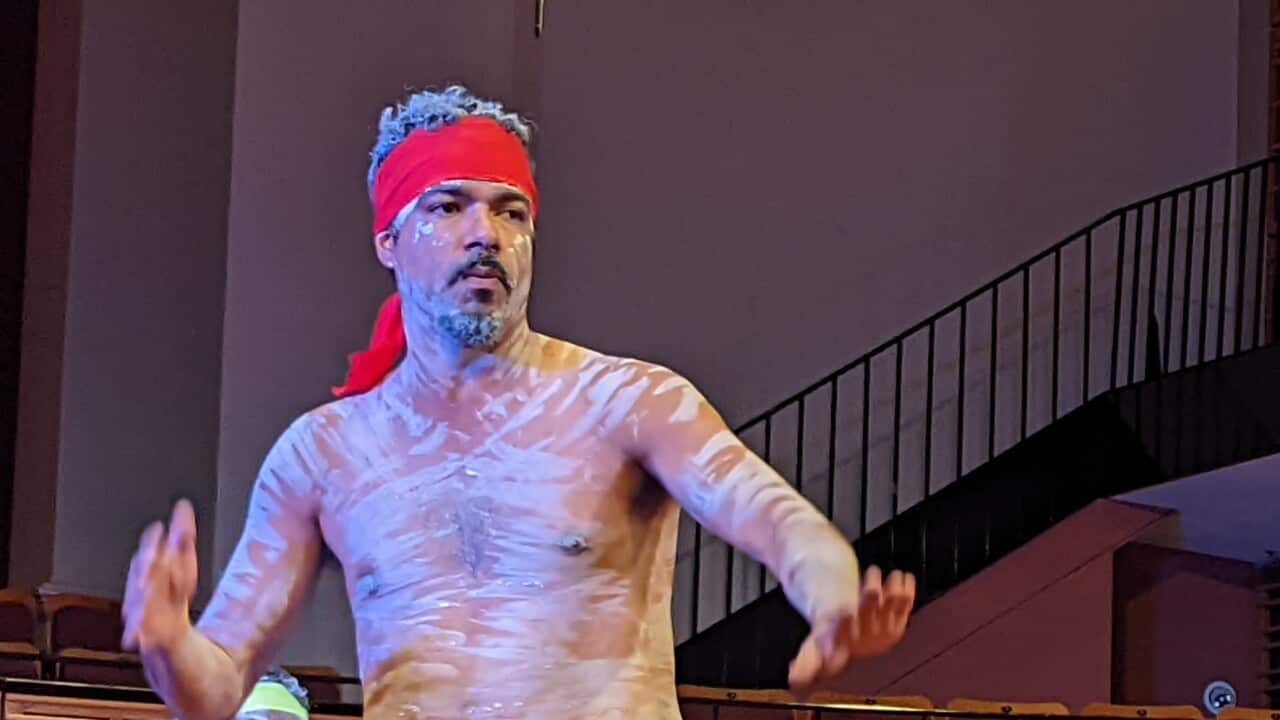Arian Pearson is a proud Yolngu man who lives in Yirrkala of East Arnhem Land in the Northern Territory.
The accomplished artist and musician, who is also of Macassan descent, said his family made him aware of the long-running trade relationships of his ancestors.
“Just through the songlines and the stories from my family, [I learned] that there’s a connection with the Macassans that goes back 400 years,“ Mr Pearson told SBS Indonesian.
However, he said many Australians and Indonesians don't realise just how strong and deep the ties between the two countries are.
Highlights
- Trade between Indigenous Australians and the Macassan people of Indonesia dates back 400 years
- 'It’s a part of our culture and it always will be,' says Yolngu artist Arian Pearson
- An event marking the end of NAIDOC Week celebrated the shared culture between Australia's Yolngu people and Indonesia's Macassan people
Commonly known to Indigenous Australians as Macassans, the seafaring traders from Makassar on the Indonesian island of Sulawesi had reached northern Australia by at least the 18th century.
Sailing by by pinisi boat, the Macassans would come to fish and trade with the Yolngu people for sea cucumbers, which they called trepang.
Over time, the presence of the Macassans cast an influence over the Yolngu people's language and way of life, and there is evidence they brought metal to Australia and partook in mixed marriages.
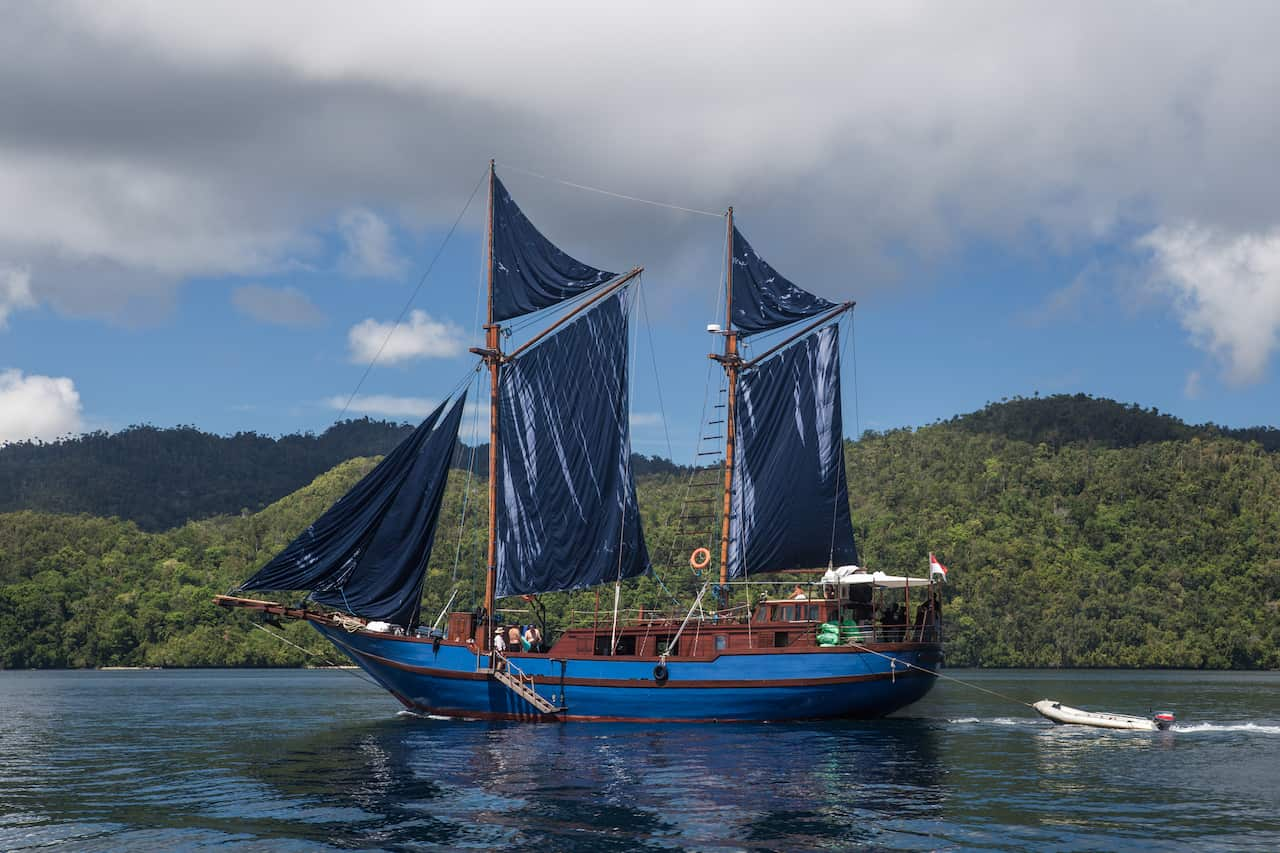
This close relationship between the two nations is still reflected in the culture of the Yolngu people today.
“Yolngu actually documented these visits and made songlines about them, and also dances, and it just became a part of our culture,” Mr Pearson said.
'Centuries of Friendship'
Such dances were performed at an event called 'Centuries of Friendship' held in Sydney on Saturday.
Organised by the Indonesian Community Council NSW with support from the Australia Council for the Arts, the event celebrated the relationship between the Yolngu and Macassan peoples through a showcase of song, music and dance.
“Some of the dances were about some of the items that they [Macassans] brought over," Mr Pearson explained. "So things like garlic cloves, cloth - they gave us different colours - also tobacco, tamarind, and other things.”
Suhandi Kosasih, one of the artistic directors of the event, admitted that the idea to showcase the deep ties between Australia and Indonesia had been sparked even since 2015. Now, alongside Prof Tjut Njak Deviana Daudsjah as co-artistic director, he has finally succeeded in realising the idea and including artists from both cultures.
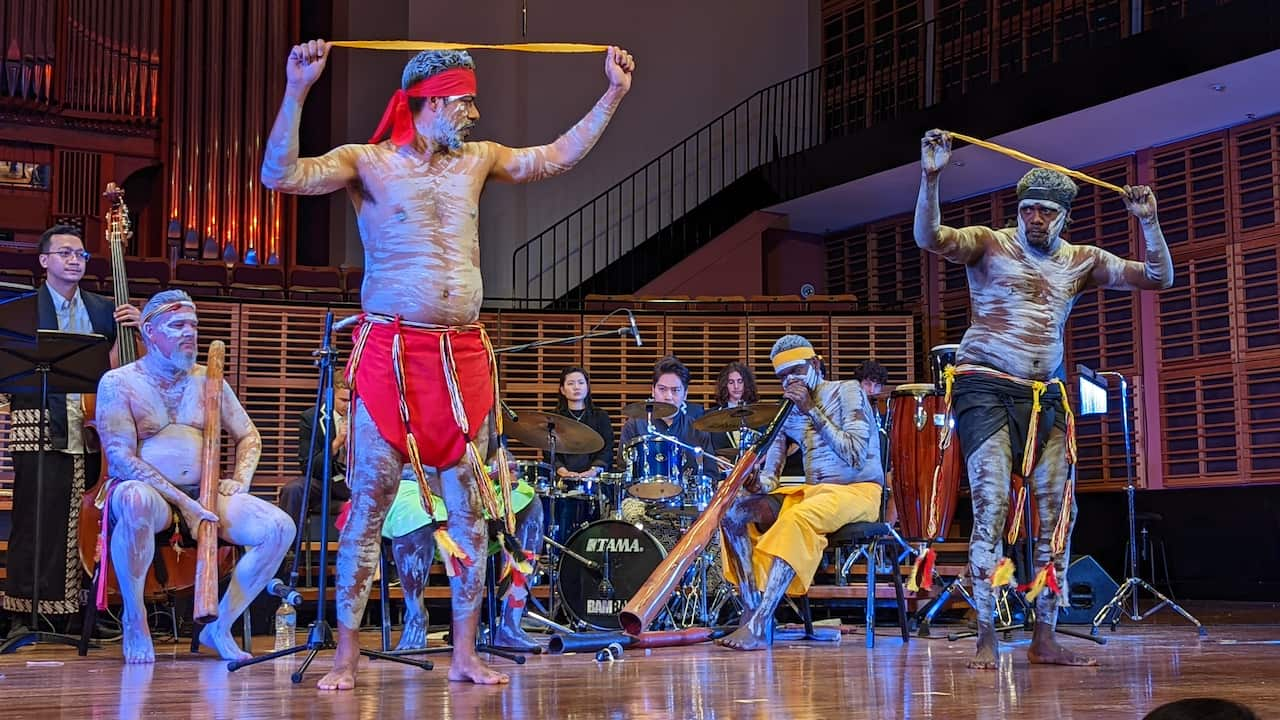
In attendance was the Mayor of Makassar, Mohammad Ramdhan Pomanto, who described the celebration as "special" because it continued the strong ties that have existed for more than 300 years.
"And nowadays, collaboration, adaptation and togetherness are part of the spirit to advance the world in general, and to advance the two countries and two regions that have been interconnected over a long time," the mayor said.
He brought with him performers from Makassar's Anging Mammiri Foundation whose performance earned a thunderous applause from the audiences gathered at Sydney Conservatorium of Music's Verbrugghen Hall.
Talking about how to strengthen trade ties in the modern day, Mr Pomanto claimed that he had recently held talks with MPs from the Northern Territory. He also added that his city will host NT's trade delegation in October this year.
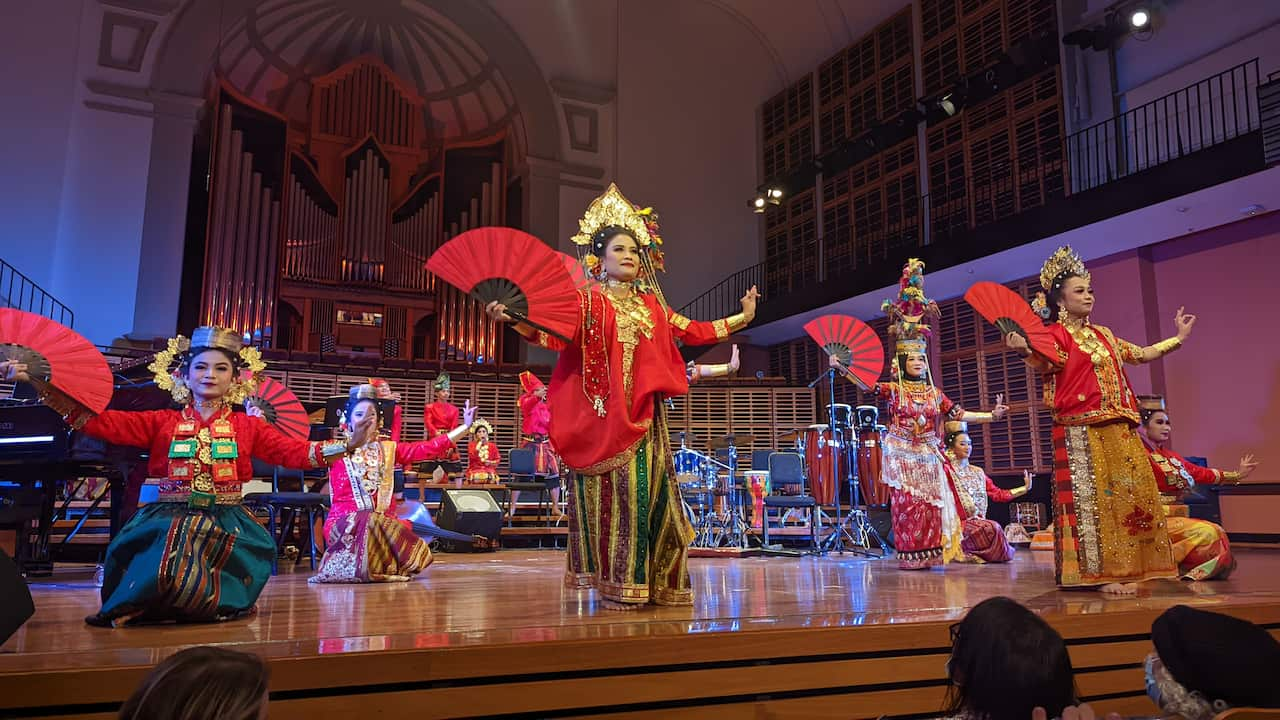
Representing the Prime Minister that evening was the Minister for Indigenous Australians, Linda Burney.
Ms Burney said the trade relationship between the Yolngu people and the Macassans marked the beginning of interactions from Aboriginal people on the north coast of Australia with the outside world.
“This laid down the foundation for people-to-people contact and it is the very heart of the Australia’s relationship with the people of Indonesia and the friendship between our two nations,” she said.
Ms Burney also mentioned that the timing of the event couldn’t have been better as Australia was celebrating the end of NAIDOC Week.
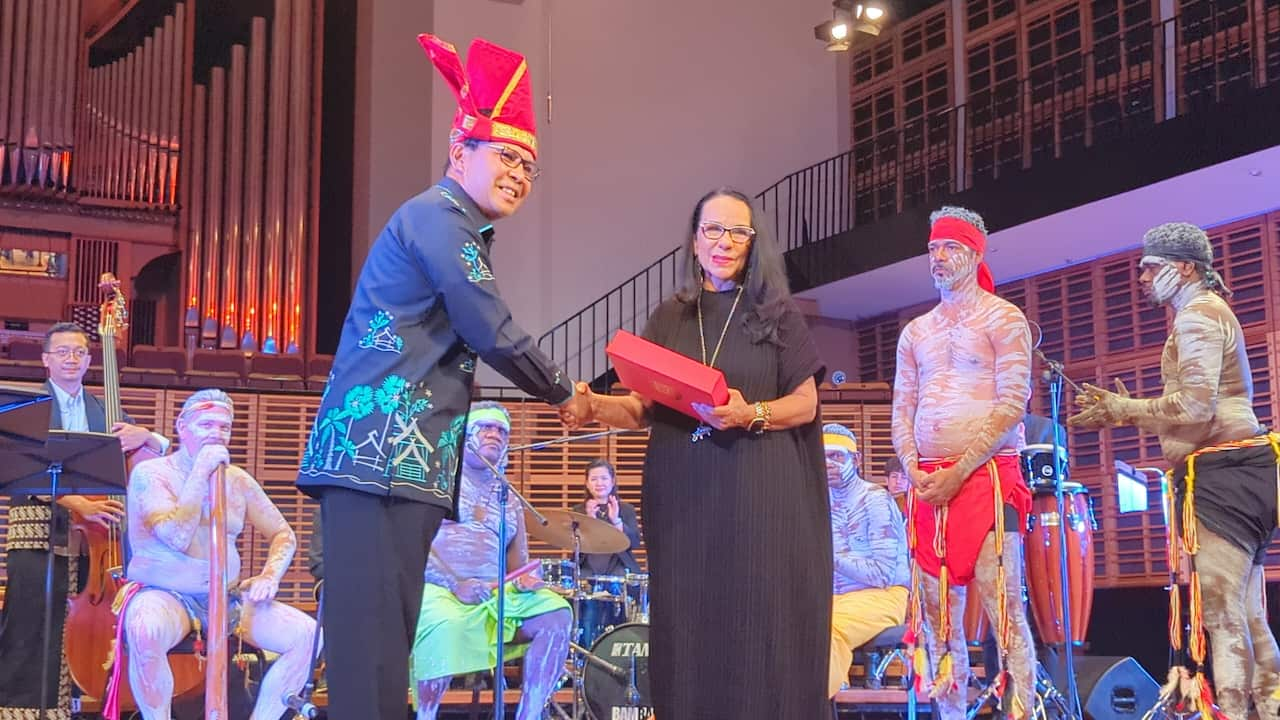
Reflecting on the event, Mr Pearson said it is important that the close relationship between the two nations continues so that it can be passed on to the next generation.
“I think by doing more of these things it creates stronger relationships with not only the Yolngu people and Macassan people, but Australia as a whole," he said.
It’s all about educating people that there’s history that’s yet to be told. It’s a part of our culture and it always will be.
